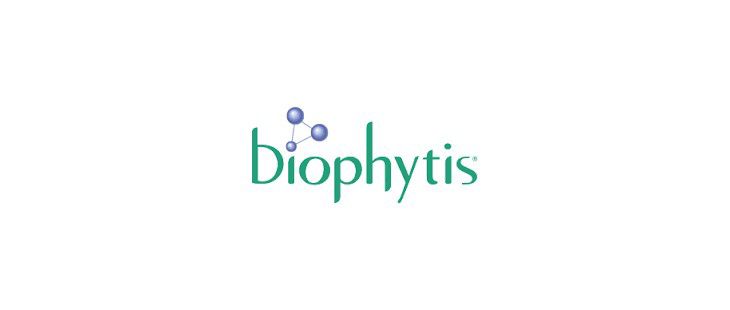Albus Health Device Detects Early Warning Signs of Child Asthma Attacks Up To Five Days Before Onset
Research presented at British Thoracic Society Winter Meeting demonstrates potential for revolutionary shift in respiratory care
Technology set to transform respiratory clinical trials: single device delivers continuous endpoint data across multiple parameters with minimal patient burden
OXFORD, UK; November 29, 2024 — Albus Health, the healthcare technology company pioneering monitoring of nocturnal health parameters including cough and breathing patterns, announces results from a clinical study at the British Thoracic Society Winter Meeting 2024 this week. The data revealed that Albus Home, the company’s AI-powered, innovative non-contact monitoring device with advanced algorithms, can detect warning signs of asthma attacks in children up to five days before they occur, potentially transforming how respiratory conditions are managed globally.

The groundbreaking study, conducted at Birmingham Children’s Hospital and Royal Brompton Hospital, demonstrated that the Albus Home device successfully identified significant changes in children’s respiratory health days before they required emergency steroid treatment for asthma attacks. This early warning window could provide crucial time for medical intervention, potentially preventing emergency hospitalisations and improving patient outcomes.
“For the first time, we have technology that can reliably monitor children while they sleep, without any disruption to their normal routine,” said Dr. Prasad Nagakumar, Director for Research at Birmingham Children’s Hospital and lead researcher on the study. “The device’s ability to detect changes up to five days before an attack represents a potential paradigm shift in asthma management, offering a window of opportunity for early intervention that simply hasn’t existed before.”
Night-time symptoms are crucial early warning signs of respiratory disease deterioration, yet until now, healthcare providers have remained blind to at-home symptoms while patients and carers often identify deterioration too late. The Childhood Home Asthma Monitoring Project (CHAMP) study recruited 100 children with asthma. The researchers analysed 47 asthma attacks across 28 children, finding that nocturnal cough frequency and respiratory rate began increasing five days before attacks occurred. In earlier studies, the device achieved clinical-grade accuracy, with 98.3% accuracy in respiratory rate measurement and 99% correlation in cough detection against gold standards.
Following insights from the study and feedback from participants and carers, Albus has developed a next-generation device that also measures heart rate, sleep parameters and air quality metrics. The device’s unique set of sensors, along with Bluetooth, Wi-Fi, and cellular connectivity, unlocks unprecedented opportunities in remote patient monitoring.
“This study validates our mission to revolutionise respiratory care through passive monitoring and early detection,” said Mikesh Udani, CEO of Albus Health. “Our technology has the potential to transform both patient care and clinical trials for several chronic diseases. By providing objective, continuous monitoring data, we can help pharmaceutical companies demonstrate response to treatment more efficiently while generating valuable insights for future drug development.”
The ability to detect and measure these subtle respiratory changes with such precision represents a major advance for both patient care and drug development. While current clinical trials rely heavily on subjective symptom reporting and limited spot-checks of respiratory function, the Albus Home device provides continuous, real-world data throughout the night – exactly when respiratory symptoms typically worsen. This has significant implications for respiratory drug development, where poor quality data collection and unreliable symptom reporting often necessitate larger, longer, and more expensive clinical trials. The Albus Home device offers pharmaceutical companies the ability to capture objective respiratory and sleep endpoints continuously, which can be used to bring new classes of therapies to asthma patients, monitor patient outcomes for post approval studies, and expand indications and labels for existing drugs.
Albus Home has already been deployed commercially to collect real world evidence on treatment response in a US-based Phase IV trial by a major pharmaceutical company. Albus is in advanced negotiations with several additional partners, highlighting strong industry confidence in the technology’s potential to transform both patient care and clinical research. Albus is now focused on expanding its clinical evidence base and set of parameters monitored, while scaling its platform to address the growing global burden of respiratory disease.
For more information about Albus Health and its unique respiratory monitoring technology, visit www.albushealth.com.
This study was funded through The Artificial Intelligence in Health and Care Award, one of the NHS AI Lab programmes. The competitive award scheme is run by DHSC. The AI Award has made funding available to accelerate the testing and evaluation of artificial intelligence technologies which meet the aims set out in the NHS Long Term Plan. In addition to Birmingham Women’s and Children’s Hospital and the Royal Brompton Hospital, partners include Imperial College London, Asthma + Lung UK, and Health Innovation Oxford.
About Albus Health
Albus Health, a spin-off from the University of Oxford, is pioneering nocturnal respiratory insights through its advanced non-contact monitoring system. The company has developed a revolutionary technology that addresses significant unmet needs in both clinical trials and respiratory care, where the inability to reliably monitor patients whilst they are in bed leads to missed early warnings of severe attacks and compromised clinical development data. The company’s bedside device combines proprietary hardware with advanced AI algorithms to deliver automated, clinical-grade insights with unprecedented accuracy in real-world settings. With its first pharmaceutical contract secured and multiple trials underway at leading institutions, Albus Health is positioned to transform respiratory care from reactive to predictive, while significantly enhancing the efficiency of global respiratory clinical trials. The company’s initial focus on respiratory conditions provides a clear path to commercial success, with potential for expansion into other chronic conditions through its established hardware and software platforms.
For Media enquires:
Sukaina Virji, Kate Hall
Albus@icrhealthcare.com
**************************************************************************************************
More info for healthcare startups : Healthcare Investors Database and Healthcare Investors Matchmaking .




